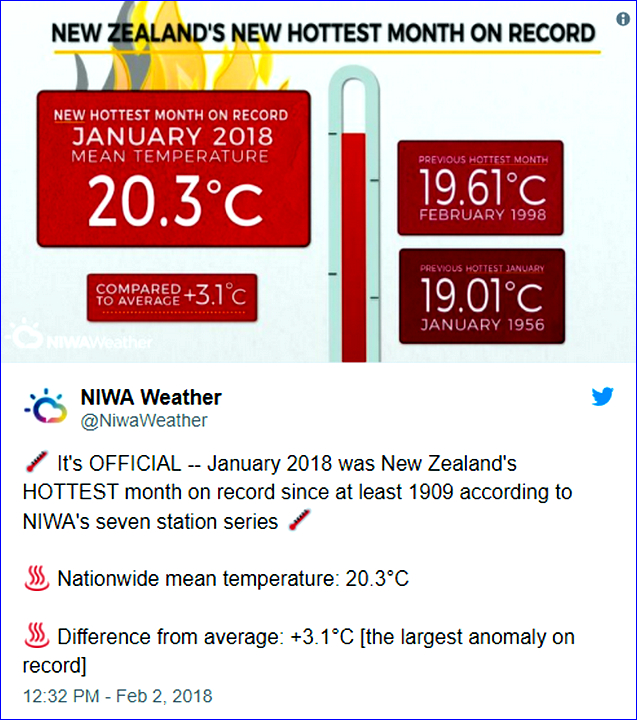The Great Barrier Reef is in "deep trouble" as climate change and other threats mount, hindering the ability of corals to rebound from natural events, a senior scientist with the reef's Marine Park Authority said.
Unprecedented back-to-back mass coral bleachings resulted in 29 per cent of the shallow water corals dying in the summer of 2015-16 and a further 20 per cent last summer, David Wachenfeld, director of recovery at the authority, said.
 |
| Marine scientist Taylor Simpkins holds up a crown of thorns starfish near the North Opal Reef off the coast of Port Douglas. Photo: Jason South |
The roughly 50-per cent death rate for the corals excludes damage done last March by Cyclone Debbie, which tore into the northern end of the southern section of the Great Barrier Reef - an area largely spared from the bleaching events.
While corals have a natural ability to bounce back, the increasing frequency and severity of extreme weather made recovery harder.
"[E]very time we get impacts on the reef, they are slightly or a lot worse than previous impacts," Dr Wachenfeld told Fairfax Media. "And the question is, as we keep seeing bigger impacts, will the reef continue to be as resilient as it has been in the past?"
How climate change will affect the Great Barrier Reef and other parts of Australia will feature at a week-long gathering of senior scientists in Sydney for the first Australian/New Zealand Climate Forum held in seven years.
Terry Hughes, Director of the ARC Centre of Excellence for Coral Reef Studies and one of the speakers at the event, said scientists were in "uncharted territory" when it came to predicting how fast the reef can recover.
 |
| Bleaching over the previous two summer killed about half the shallow water corals on the Great Barrer Reef. Photo: AAP |
"Optimistically, 50 per cent mortality after the two recent heatwaves means the glass is still half full," he said. "The survivors ... are tougher than the corals that died - there is about a billion of them, and they are reproducing."
 |
| 'Still an amazing experience': Gliding over fields of coral at Rib Reef off Orpheus Island, North Queensland. Photo: James Vodicka |
"That's the way to give the reef the best chance to survive the global threat of climate change," he said.
"The reef is still a dynamic, vibrant, awesome place," Dr Wachenfeld said. "But it's in deep trouble, and at the moment, it's not heading in the right direction."
Dr Wachenfeld said the authority didn't have expertise to judge impacts from particular projects, such the plans by Indian-owned miner Adani to develop the potentially massive Carmichael mine inland from the reef.
However, Professor Hughes said "there's no shortage of scientific evidence that a huge new coal mine in Queensland would have a detrimental effect on the [Reef], now more than ever as the corals struggle to recover".
"There's a long list of known impacts - the greenhouse gas emissions of course, but also coastal pollution from the port, dredging, the effects of ship noise and strikes on megafauna, anchor damage on seagrass beds, and the risk of ship grounding and introducing pest species in bilge water," he said.
"When the permit for the Adani mine was issued, we didn't fully understand just how vulnerable the GBR was to climate change. Now we do."
The Sydney gathering, organised jointly by the Australian Meteorological and Oceanographic Society and the Meteorological Society of New Zealand, will have many recent extreme weather events to consider.
These include the on-going Tasman Sea heatwave, with temperatures four or more degrees above average, and January's remarkable warmth in New Zealand. The country posted its largest departure from normal conditions for any month in 110 years of records.
 |
| IMAGE |
Links
- $60 million 'rescue plan' for reef too little: critics
- 'Serious case of negligence': Scientists blast controls on coral-eating starfish
- 'Wasteful Stunt': Turnbull Government Accused Of Doing Too Little To Save Reef
- Great Barrier Reef: Rising Temperatures Turning Green Sea Turtles Female
- Great Barrier Reef Will Be Dead By 2100, Says David Attenborough's Blue Planet II
- Why Climate Change Is A Key Issue In The Queensland Election
- Warming Limit Of 1.2 Degrees Needed To Save Great Barrier Reef: Expert Panel
- While Corals Die Along The Great Barrier Reef, Humans Struggle To Adjust
- The Great Barrier Reef Isn’t Listed As ‘In Danger’ – But It’s Still In Big Trouble
- The Long Goodbye: Coal, Coral and Australia's Climate Deadlock

No comments :
Post a Comment